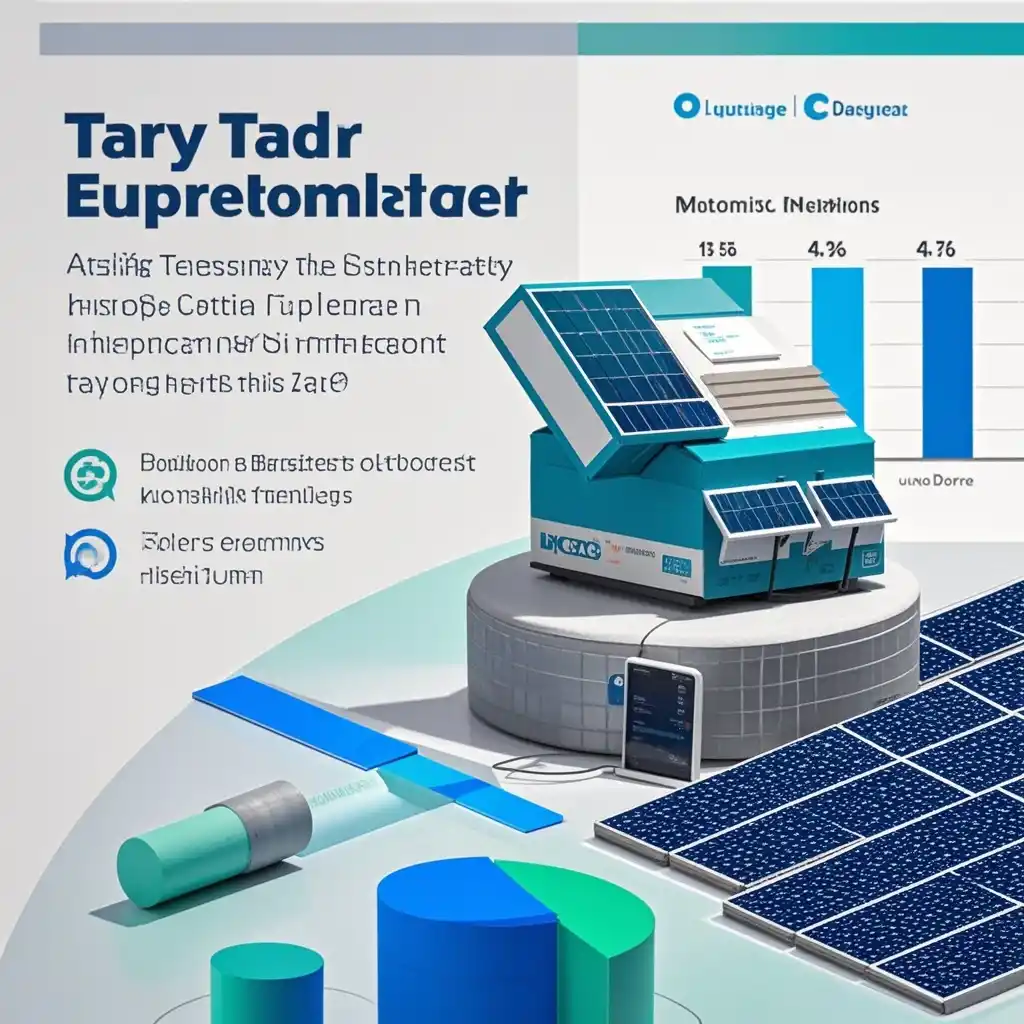The Impact of Tariffs on Renewable Energy E-commerce: Challenges and Strategies for Market Diversification

Background
The renewable energy sector has been experiencing significant growth in recent years, with e - commerce playing an increasingly important role in facilitating the distribution of products such as solar panels, wind turbines, and energy - storage systems. However, the international trade of renewable energy products is facing a major obstacle in the form of tariffs.
For example, in some countries, solar panel imports are subject to relatively high tariffs. In the United States, the Trump administration imposed significant tariffs on imported solar panels in an attempt to protect the domestic solar manufacturing industry. These tariffs ranged from around 30% for the first year of implementation. Such high tariffs have a direct impact on the cost of solar panels in the market. According to industry reports, the price of solar panels in the US market increased by approximately 10 - 15% in the months following the implementation of these tariffs, which not only affected end - consumers but also hindered the growth of renewable energy e - commerce platforms that rely on cost - effective imports.
The Impact of Tariffs on Renewable Energy E - commerce
1. **Increased Costs for Consumers**
- Tariffs directly increase the price of imported renewable energy products. When e - commerce platforms import solar panels, wind turbines or other components from overseas, they have to pay the additional tariff costs. These costs are ultimately passed on to the consumers. For instance, a small - scale solar energy system for a residential home, which might have cost $10,000 before the tariff, could now cost $11,000 or more, depending on the tariff rate. This price increase makes renewable energy solutions less affordable for many households and small businesses, thus reducing the demand on e - commerce platforms.
2. **Hindered Market Expansion for E - commerce Platforms**
- E - commerce platforms rely on a wide range of suppliers from different countries to offer diverse product options to their customers. Tariffs limit the number of potential suppliers as high - tariff regions become less attractive for sourcing products. For example, an e - commerce company that used to source solar panels from multiple countries may be forced to cut off suppliers from high - tariff countries. This reduces the product variety available on the platform, and also limits the potential customer base as the company may not be able to reach customers in regions where those products were previously competitively priced.
3. **Disruptions in the Supply Chain**
- Many renewable energy e - commerce businesses have established complex supply chains that span across multiple countries. Tariffs can disrupt these supply chains as manufacturers may need to re - evaluate their production and distribution strategies. For example, a manufacturer of wind turbine components in Europe that used to export to the United States may reduce its production volume destined for the US market due to the tariffs. This can lead to shortages of certain components on e - commerce platforms in the US, affecting the ability of installers and developers to complete projects on time.
Strategies for Market Diversification
1. **Local Production and Sourcing**
- E - commerce platforms can encourage local production of renewable energy products. For example, in some regions with suitable conditions, such as areas with abundant sunlight for solar panel manufacturing, local governments can provide incentives for companies to set up production facilities. In the case of the United States, some states have started to offer tax breaks and subsidies for domestic solar panel manufacturing. By promoting local production, e - commerce platforms can reduce their reliance on imports and avoid tariff - related cost increases.
2. **Exploring New Markets**
- Instead of focusing solely on traditional high - demand markets with high tariffs, e - commerce platforms can look into emerging markets. For example, many African countries are in great need of renewable energy solutions to meet their growing energy demands. These markets may have lower trade barriers and a high potential for growth. By establishing partnerships with local distributors and suppliers in these emerging markets, e - commerce platforms can diversify their customer base and revenue streams. Data shows that the renewable energy market in Africa is expected to grow at an annual rate of over 10% in the next five years.
3. **Product Differentiation and Value - Added Services**
- E - commerce platforms can focus on differentiating their products and offering value - added services. For example, they can offer customized renewable energy solutions for specific customer needs. Instead of just selling standard solar panels, they can provide complete solar energy systems that are designed, installed, and maintained by their in - house teams. This way, they can compete on factors other than price and offset some of the negative impacts of tariffs. A study found that customers are often willing to pay a premium for such comprehensive and customized renewable energy solutions.
Conclusion
Tariffs have a significant impact on renewable energy e - commerce, causing increased costs, hindered market expansion, and supply chain disruptions. However, through strategies such as local production, exploring new markets, and product differentiation, e - commerce platforms can mitigate these impacts and achieve market diversification. It is crucial for the renewable energy e - commerce industry to adapt to the changing tariff landscape in order to continue its growth and contribute to the global transition towards a more sustainable energy future. The combination of government support in terms of incentives for local production and e - commerce platforms' own innovation in market strategies will be essential for the long - term success of the renewable energy e - commerce sector.



